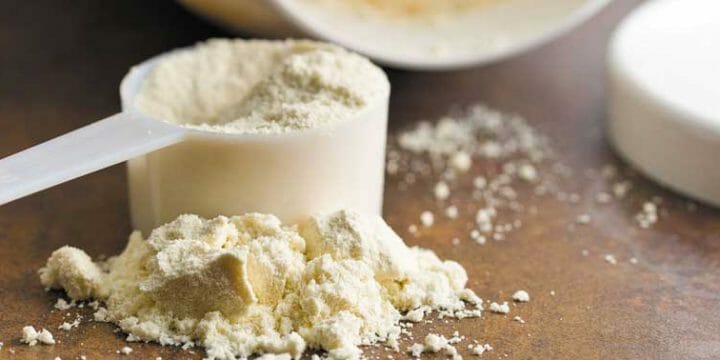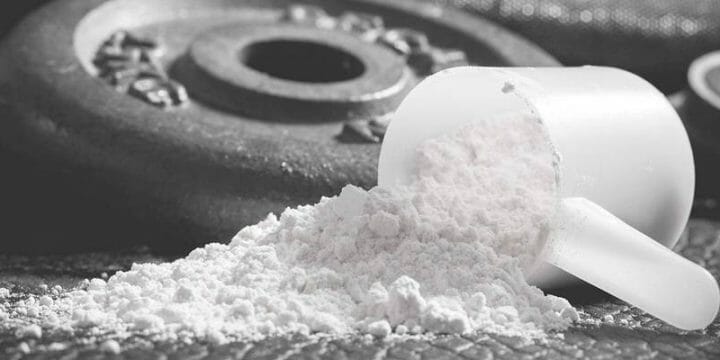In some ways, using nootropic smart drugs is comparable to drinking alcohol because they both boost your confidence and provide a positive experience for a short period.
However, they do not mix since consuming alcohol and nootropics can harm your health, cognition, and fitness objectives.
To understand more about the effects of mixing the two, I scheduled a few sessions with a doctor and reviewed several materials on the subject.
In this article, I will cover all the most important information on why you shouldn't mix nootropics with alcohol.
Quick Summary
- To maintain optimal health and cognitive function, it's crucial to avoid mixing nootropics with alcohol due to their harmful interactive effects.
- Combining nootropics with alcohol can lead to negative interactions, such as increased susceptibility to seizures and reduced cognitive performance.
- The National Institute of Health suggests that even moderate alcohol consumption, like a single glass of red wine, can quickly escalate into unhealthy drinking patterns and result in hangovers that impair mental function.
- In my opinion, combining nootropics with alcohol is unwise, as it can severely hinder both mental and physical performance, counteracting the benefits of nootropics.
Why Drinking Alcohol Is Bad News for Cognition

Drinking alcohol is detrimental because it causes a hangover, negatively impacting cognition and mental function.
According to the National Institute of Health, a glass of red wine may be beneficial due to its antioxidants but it's very simple to slip into unhealthy drinking and a hangover [1].
Factors influencing this include:
- A large amount of alcohol consumption in a short period, like more than six glasses (alcohol abuse).
- Sleep deprivation, which lowers brain and bodily recovery time.
- Drinking on an empty stomach, as food, reduces the absorption of alcohol in your intestines.
Hangover
As a personal trainer, I've seen hangovers totally mess up focus and give killer headaches. Clients can barely manage one exercise, let alone a full workout.
According to the National Institute of Health (NIH), heavy drinking zaps your mood and energy, thanks to oxidative stress and cortisol messing with brain chemicals like norepinephrine and dopamine, vital for staying positive and motivated [2].
Drinking, and a lack of sleep, is a recipe for zero energy and mental exhaustion. Regularly doing this leads to constant brain fog and poor brain function.
But not every drink means a hangover. Signs of a hangover according to NIH incude: luggish thinking, exhaustion, irritability, thirst, stomach issues, headaches, nausea, and loss of appetite [3].
Nootropics And Alcohol
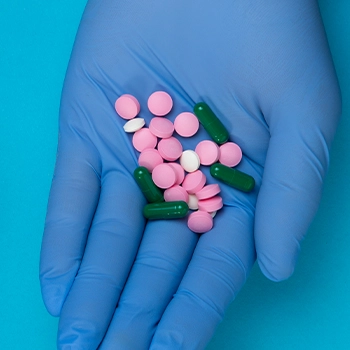
I know nootropic vitamins are a hit for boosting brainpower, aiding in tasks from schoolwork to daily routines.
Contrastingly, according to NIH, alcohol is often used to dull the senses and boost confidence, a common choice for socializing, hence the term 'social drinking' [4].
From my experience, combining nootropics and alcohol isn't wise.
As per a study by NIH, when nootropics and alcohol are mixed, there is a chance for an adverse reaction to occur due to the intermingling of different drug substances within the body.
This could lead to an increase in seizure susceptibility as well as a decrease in cognitive performance [5].
Examples of Nootropic-Alcohol Interaction

Some argue that cognitive enhancement products and alcohol do not mix well and have opposite effects. This is arguable and largely dependent on the nootropic you combine it with, because alcohol interacts differently with each nootropic.
1. Aniracetam And Alcohol
According to a study from the National Library of Medicine, alcohol mainly works by increasing the inhibitory neurotransmitter GABA in the brainstem and spinal cord, while also reducing the impact of some stimulating neurotransmitters [6].
When mixed with aniracetam, this effect intensifies, leading to unpredictable stress on the body. This combo reduces dopamine receptors in the brain, causing physical and mental discomfort.
Both high and low doses of aniracetam with alcohol can be harmful. It's tough to predict how this mix will affect someone.
“Individuals who consume both alcohol and aniracetam will feel the effects of both. Much more aniracetam used with alcohol will result in drowsiness and lethargy, in addition to the synergistic actions of the two substances.”
- Michael Por, Doctor of Medicine.
2. Modafinil And Alcohol
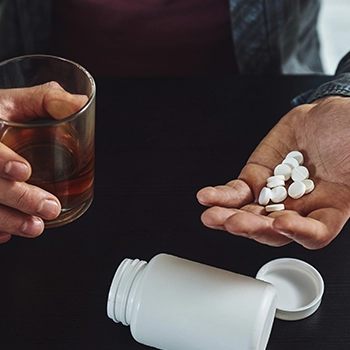
Accoeding to NIH, modafinil, a top-tier nootropic, decreases GABA and increases orexin, glutamate, serotonin, histamine, and dopamine [7].
Mixing Modafinil with alcohol is risky due to their conflicting effects on GABA.
This combo significantly cuts down Modafinil's ability to enhance focus and may ramp up side effects.
Drinking alcohol while on Modafinil hampers productivity and borders on misuse. Both can dehydrate you, leading to intense thirst and potential migraines.
3. Noopept And Alcohol
According to NIH, Noopept, a top-notch nootropic, boosts productivity and motivation and helps create new neurons [8].
It's gained fame as a leading nootropic pill, thanks to its significant benefits and minimal side effects.
As a member of the racetam group, Noopept enhances brain metabolism. It not only intensifies alcohol's effects but also alters the experience, increasing mental sharpness and maintaining physical control.
Higher doses of Noopept can lessen the feeling of being drunk. Users often report less desire to drink alcohol and find it effective in eliminating hangovers.
4. Phenibut And Alcohol
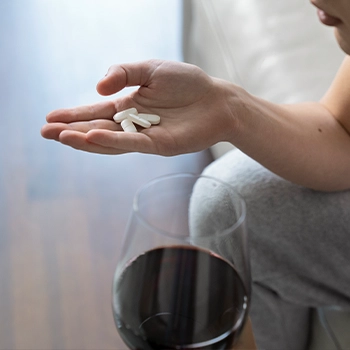
As per a study by NIH, Phenibut, a nootropic, relaxes and boosts sociability, confidence, and extroversion, while easing anxiety and tension [9].
It's used for sleep, socializing, and mood enhancement, offering calmness without sleepiness. Besides mood and sociability benefits, it also improves focus and memory.
Mixing alcohol and Phenibut is a no-go. This combo is unpredictable as Phenibut's absorption varies, affecting the results.
Both increase GABA in the brain, affecting the main inhibitory neurotransmitter.
They can cause slow breathing (respiratory distress) and lower heart rate. Reduced breathing cuts off brain oxygen, risking hypoxia and potential permanent damage.
5. Piracetam And Alcohol
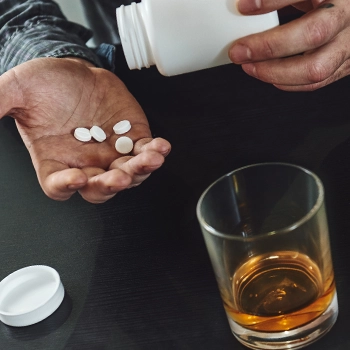
Acoeding to research by NIH, Piracetam boosts memory and brain function [10].
It enhances focus, memory, and clarity, perfect for academic and attention-demanding tasks.
Effective for up to seven hours daily, NIH also shows that Piracetam improves reading in dyslexia [11].
But, don't mix it with alcohol. Safe with most drugs, alcohol is the outlier. Mixing the two heightens drunkenness, slashes alcohol tolerance (one drink feels like multiple), and leads to drowsiness.
6. Tianeptine And Alcohol
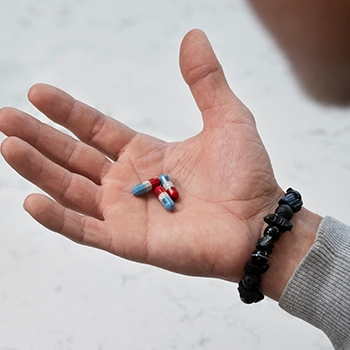
As a personal trainer, I've seen how Tianeptine, a strong mood enhancer and nootropic, can boost overall wellness and brain function, offering both quick and long-term perks.
It quickly improves mental sharpness and focus, acting as a solid boost for productivity. With regular use, its benefits grow, helping to lessen stress, depression, and social anxiety.
But, combining Tianeptine with alcohol? Bad idea. It can lead to extreme sleepiness, especially if you get the dose wrong.
Plus, alcohol might cancel out Tianeptine's positive effects and even worsen stress or depression.
7. Alpha-GPC and Alcohol
Alpha-GPC, a choline supplement, may have a protective effect on the liver.
However, combining it with alcohol may not reduce the overall negative health impacts of alcohol consumption.
8. Ashwagandha and Alcohol
Ashwagandha, an adaptogen, may have an anxiolytic effect.
While it may reduce stress, combining it with alcohol can enhance sedation and impair cognitive functions.
9. Bacopa Monnieri and Alcohol
Bacopa, known for cognitive enhancement, may have a protective effect against alcohol-induced memory impairment.
According to ScienceDirect, bacopa may mitigate the cognitive deficits associated with alcohol consumption [12].
FAQs
Can Nootropics Help Brain Damage?
Yes, nootropics help with brain damage as they can improve rehabilitation results and can speed recovery.
Can You Drink Alcohol With Nootropics?
No. You cannot drink alcohol with nootropics, as the interaction between them and alcohol may cause serious adverse effects like intense sedation.
Can Nootropics Help With A Hangover?
Yes, nootropics can help with hangovers as they increase the body's antioxidant capacity against oxidative stress and the effects of alcohol withdrawal.
Can I Have One Drink On Modafinil?
No. You cannot have one drink on Modafinil as the interaction may cause blackouts.
References:
- https://www.ncbi.nlm.nih.gov/pmc/articles/PMC6099584/
- https://www.ncbi.nlm.nih.gov/pmc/articles/PMC6826820/
- https://www.ncbi.nlm.nih.gov/pmc/articles/PMC5638093/
- https://www.ncbi.nlm.nih.gov/pmc/articles/PMC5724975/
- https://pubmed.ncbi.nlm.nih.gov/4062922/
- https://www.ncbi.nlm.nih.gov/pmc/articles/PMC6826822/
- https://www.ncbi.nlm.nih.gov/pmc/articles/PMC2654794/
- https://pubmed.ncbi.nlm.nih.gov/36195298/
- https://pubmed.ncbi.nlm.nih.gov/11830761/
- https://pubmed.ncbi.nlm.nih.gov/1794001/
- https://pubmed.ncbi.nlm.nih.gov/3305591/
- https://www.sciencedirect.com/science/article/pii/S0753332218383914
About The Author
You May Also Like

